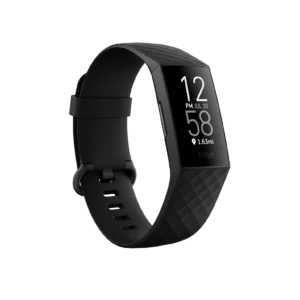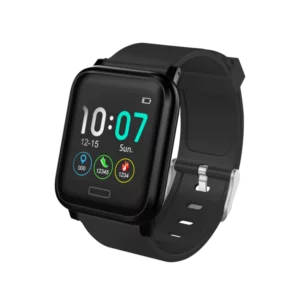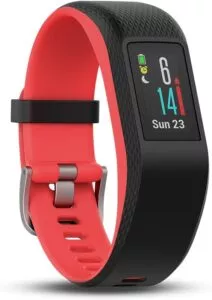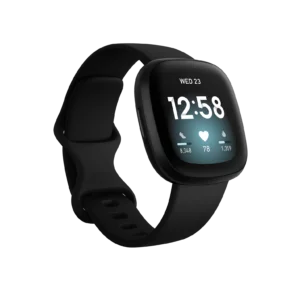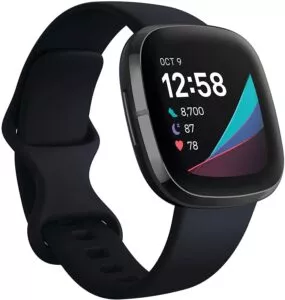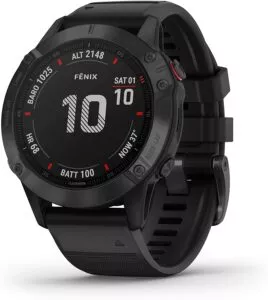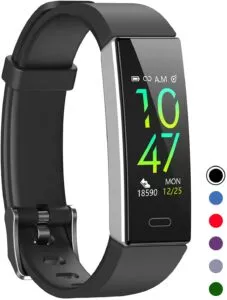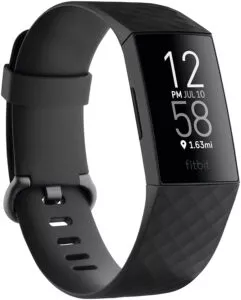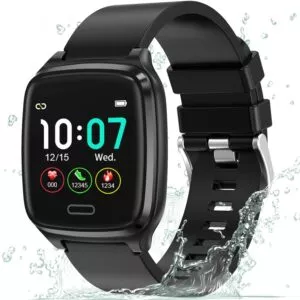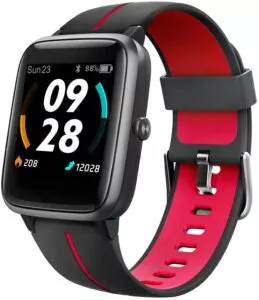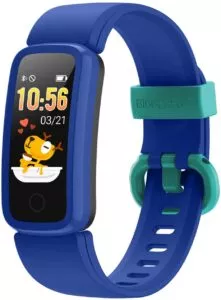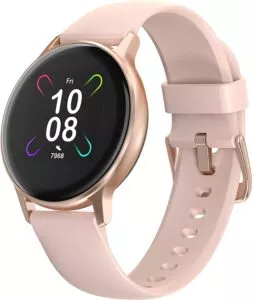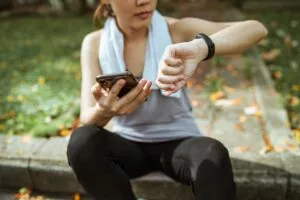
The Best Fitness Trackers in Canada
Fitness trackers are becoming more regular and well known than analog ones. If you’ve been on the fence about a fitness tracker or fitness-focused smartwatch, the prices and technology have become more advanced and less of an overly expensive out-of-reach device in its infancy. Fitbit, Garmin, and Apple are three of the top-rated fitness tracker and smartwatch brands, while staying in reach of most users looking to dip their toes in.
Whether you’re looking for a new fitness tracker or just starting out, we’ve done the hard work for you. In this guide, we look at and review the top-rated fitness trackers in Canada, at all price points that should better help you decide on your new tracker.
Our top picks
What to look for in a fitness tracker
Technology has become more prevalent over the years and can be nearly called a necessity in this day and age. Our phones track everything, and Google Home and Alexa help us do the shopping and other helpful things such as turning on lights, setting timers, and protecting our home.
But when looking for a new or first-time fitness tracker, keep these key points in mind:
Compatibility – Compatibility is vital when purchasing a fitness tracker. Not just for your phone and apps that need to connect in order to work, to track and record, but compatibility for your lifestyle as well. Do you want a tracker that has all the bells and whistles that is essentially a smartwatch? A basic tracker that you just want for your daily exercise routines and then take off? Something all around that will track swimming, sleeping, and other tasks? Make sure it’s compatible with your lifestyle as well as your technology.
Style – It goes without saying that you’ll want something that looks good with your own personal tastes. There are more feminine styles coming out lately, tracker styles with bright colours and designs geared towards children, and large bulky trackers that emulate large analog watches. Customizable bands are available for most trackers as well, allowing you to change it up when you’re going out, match your outfits, and even different materials when you want to really break a sweat or go swimming. The sky’s the limit.
Display – Displays can arguably belong in the Style category, but they do play a big part since you’ll be looking at them every day. Some only track steps taken and the current time, some aren’t customizable, and some can be switched to show what’s most important to you. Be sure to check what displays show on the trackers you’re interested in and see if they’re customizable. Most higher-end smartwatch types of trackers have custom displays made by other users that you can use for yourself – from video game styles to flowers to rainbows.
Battery Life – Your tracker won’t do any good if it doesn’t last for what you need it for. It’s difficult to say what the average battery life is, as they vary as much as lasting a few days to over a month, depending on what tracker you choose. Garmin and Fitbit watches and trackers last days, weeks in some models (depending on use, of course), while other trackers that aren’t so feature-heavy can last for 45 days.
Water Resistance – If you’re a swimmer, live in a wet climate, or just don’t take your tracker or watch off while showering after working out, you have to make sure that your tracker is water-resistant or fully waterproof. Most trackers are water-resistant for up to 50 meters, but can’t handle much more than a swim, shower, or otherwise drop into the water before they might get wrecked. If you’re swimming in oceans or pools that have anything that could damage your watch, be absolutely sure to check the specs before purchasing. There are waterproof trackers that are fantastic.
Accuracy – The accuracy rate for nearly all trackers is hit or miss. That isn’t to say that they’re bad by any means, but they are to be taken with leniency. Numbers won’t always be 100% correct, but the accelerometer does the best it can. Some brands are more accurate than others in certain aspects such as heart rate, but their step count might be off, and vice versa. Most are fairly even across the board, and it would do you well to keep in mind that it can be off at times. There are measures that can help inaccurate readings, such as keeping your tracker snug but not too tight or too loose, and on the proper spot on your wrist.
Budget – Fitness trackers can be found for $20 up to $1200. It’s up to you want you’re comfortable with spending on a tracker, and what features you’re wanting most. Higher cost generally tends to mean more features, but it doesn’t always mean better accuracy. A $45 tracker might work just as well as a $100 smartwatch but might be missing core features.
Top-rated fitness tracker in Canada
Fitbit Charge 4
Fitbit has become a quintessential tracker and smartwatch name in most places and homes. Their relative affordability and availability have made them popular for runners, gym users, and everyday users, whether they work out consistently or not. They’re great for keeping tabs on heart rate, resting heart rate, steps taken during the day, tracking your sleep, and even tracking your menstrual cycle for health.
Fitbit’s Charge 4 is a step above their previous model, with GPS included within the tracker itself, so that you don’t need to connect to your Fitbit App anymore on your phone for it to work, you can leave it behind while going for a run or walk without worry. Active Zone minutes vibrate your tracker when you’ve hit certain heart rate goals during your exercises, and when you’ve done extra minutes outside of exercising.
The 24/7 heart rate monitor tracks your resting heart rate and current rates in real-time as you go about your day, and at night while asleep, helping you see where your numbers are, and can help better measure your calorie burn. 20+ goal-based activities track and work in real-time as you do them, including swimming, as the tracker is water-resistant to 50m, and can be worn in the shower as well, without any concern for breaking the tracker.
Battery life for the Charge 4 is a full week, more or less will depend on how much you use the applications of course, but according to Fitbit and users, the average lifespan before it needs a recharge is seven days. You can stay connected to your text and call notifications on your Charge 4 with your phone nearby, Spotify music control, and the intuitive touchscreen adjusts the backlit display for sunshine or nighttime so that it isn’t too bright or dim when you check your stats or the time.
Pros
- Built-in GPS tracking.
- 24/7 heart rate monitor.
- 20+ goal-based exercise modes, including yoga, spin, martial arts, etc.
- Sleep tracking.
- Good battery life and charges fast.
Cons
- Not a large screen.
- Steps taken count and heart rate can be inaccurate.
Best budget fitness tracker
L8star Smart Watch Tracker
If you’re looking for an inexpensive tracker smartwatch to dip your toes into the digital world, the L8star smartwatch tracker might fit the bill.
The options for heart rate monitoring with the L8star are wonderfully varied once you set up and sync with the app. One hour-, two-, six-, and twelve-hour intervals are checked automatically for heart rate, with options to manually change it, or set it for 30-seconds.
It has six different exercise modes directly built into the tracker – Running, Cycling, Skipping, Table Tennis, Badminton, and Tennis. The sensor and pedometer accurately count steps taken, calories burned, and distance, to measure your daily physical activity easily. While not fully waterproof, it is water-resistant enough to last through hand washing, sweat, and rain, but try not to wear it in the shower or while swimming.
Pros
- Charges fast and has decent battery life.
- Large screen.
Cons
- Doesn’t have certain exercise modes, such as yoga.
- Can’t handle swimming or shower wear.
Best fitness tracker with heart rate monitor
Mgaolo Fitness Tracker
While you can’t go wrong with a fitness tracker that tracks heart rate, the Mgaolo tracker has you covered and at a good price point.
Available in several colours, the Mgaolo fitness tracker is decently priced and worth it if you don’t need all the advanced bells and whistles that can come with other trackers. You do need to connect the GPS to your phone and the app while you’re running if you want your distance and area covered to be tracked.
Heart rate is monitored 24/7, including during exercising, at rest, and in day-to-day life. A sedentary reminder will let you know when you need to get up and move around. One caveat is that the sleep tracker seems to only track your sleep between 10 pm and 8 am, though that may be able to be changed within the application. Calls, texts, and other notification alerts will appear on your tracker, though you can’t reply. All alarms fall within 21 categories, such as sedentary reminders, wake-up alarms, medication reminders, and more.
One stand-out feature of this tracker is that you don’t need to carry an external charger with you. Just take off one of the watch straps’ sides, and it can be charged via any USB ports. It’s a refreshing change when most trackers and watchers have their own custom charger that if you lose or break, needs to be replaced and bought directly from the manufacturer.
Pros
- 24/7 heart rate monitoring.
- Water-resistant up to 1.5m.
- No external charger needed – can be plugged directly into a USB port after removing one of the straps.
Cons
- The app can be finicky.
- Sleep is tracked from 10 pm to 8 am.
- GPS has to be connected to the phone.
Best waterproof fitness tracker for swimming
Garmin Vivosport
Garmin is well-known for their accuracy and well-built technology, especially for GPS tracking within their smartwatches and fitness trackers, but that isn’t all that they’re good for.
The Garmin Vivosport is a sports lovers best friend. It’s pricier than most other trackers on this list, on par if not more expensive than Fitbit. Comfortable, lightweight, not bulky, and sleek enough to wear out in the evening with friends, or at work as well, not just while exercising. The Vivosport comes in several colour options with the ability to switch straps if you want a different look to match your outfits.
15 pre-loaded exercises are at your fingertips for easy touch and go, Built-in GPS allows you to track your runs without needing your phone, recording distance, pace, location, and more. It’s safe for swimming and showering, and the Garmin Chroma display is housed beneath sturdy Gorilla glass.
Side Swipe interface allows you to quick scroll and easy navigation of the apps and menus, whether you scroll and swipe with your index finger or thumb. You can create your own scheduled workouts and download them straight to your tracker, while the Vivosport will keep track of those exercises, reps, sets, and rest time for you. While it does have NFC contactless payment, Garmin Pay doesn’t work in Canada yet, so that is a useless feature.
Watch faces, weather apps, Uber, and more can be downloaded onto your watch from Garmin’s app, which can make day to day applications smoother and easier without needing your phone to do all the heavy lifting. Daily fitness and stress tracking is also included, along with sleep tracking. Keep up on your levels and see what might need more work. Battery life is five days up to a week, depending on personal use, while charging can bring the Vivosport from zero to 100% in less than an hour.
Pros
- Accurate tracking.
- Light and not bulky to wear every day.
Cons
- Pricey.
- NFC payments don’t work within Canada, as Garmin Pay doesn’t work in Canada.
- The display could be brighter.
Best fitness tracker for sleep
Fitbit Versa 3
Fitbit’s Versa 3 and the Fitbit Sense were the newest versions to have come out in 2020/2021. The Versa 3 has a few more features than its predecessor, the Versa 2. With built-in GPS, breathing exercises, a higher resolution screen, and the ability to answer calls, it can be well worth the step-up in the price for the Versa 3.
With five colourways to choose from, you’re sure to find one that piques your interest, from multiple strap colours and two face options being black aluminum or soft gold aluminum. Other straps are available as well beyond the one that you initially choose if you want to switch it up.
All-day step tracking, 24/7 heart rate monitoring, sleep tracking, 20 different workout modes (including Yoga and Pilates), and auto-track will detect when you’ve started working out in case you don’t set it manually beforehand. It can be finicky however and won’t always start properly, especially if you’re doing something smaller and less strenuous like going for a walk or doing yoga – Settings can be adjusted within the app and watch itself to have a more stable start.
PurePulse 2.0 is Fitbit’s newest heart rate tracking tech and has been shown to be more accurate than previous models. A full week of battery life is the general range, more or less, of course, being on how much you use it and what you use it for the most. With GPS tracking engaged while running or hiking, it will last 10+ hours, for a full day of exercise without worrying about the battery dying within an hour or two. The fast charge will fully charge the Versa 3 within 15 to 20 minutes, from zero charges, and less time than that if it isn’t completely dead. Fitbit states that it can charge within 12 minutes, but from user experience, it does seem to be slightly longer.
Music and podcasts can be stored and played within your watch through the Deezer app, NFC contactless pay with Fitbit Pay does work in some places across Canada, and there are other apps as well that do work everywhere, such as the Starbucks app. Women’s health with menstrual tracking and
Sleep tracking on the Versa 3 is generally accurate, and will show stats when you’re awake, lightly sleeping, and in full REM deep sleep. Hours slept, tips for getting better sleep, and more. The Versa 3 shows your stats right on your watch but does still need to be synced with the app to show everything properly.
Pros
- Good battery life.
- Charges fast.
- Built-in GPS.
- Large watch face with customizable stats and faces.
Cons
- Pricier.
- Square design might not be to every user liking.
Best fitness tracker for GPS
UMIDGI Built-in GPS Tracker
Coming in with three colourways, the UMIDGI smart tracker is an amazing buy for the price. The features included rival more expensive smartwatches and the battery life can’t be beat, even while using the GPS on runs and hikes.
Equipped with all the same features as other smart trackers and watches such as heart rate tracking, sleep tracking, calorie consumption, steps taken, 14 sport modes, and can be used to check messages and calls, though you can’t reply to calls. 10 days of use on one battery charge, and 45 days while in standby mode. It’s compatible with all Android 4.4 smartphones, and iOS 8.0. Facebook, Twitter, and other notifications can be set as well to reject or read.
The GPS tracking is built right in and will last for hours while in use, all stored in your phone when you sync up to the app. You can leave your phone behind without losing data. Personalized watch faces can be changed as well. Female health tracking is included, such as menstrual tracking, which can take the pain of tracking yourself away and make it less stressful.
Alarm reminders are also a nice inclusion, along with music control.
Pros
- Inexpensive.
- Built-in GPS.
- Comfortable, nice design.
- Long battery life.
- 5ATM waterproof.
Cons
- Doesn’t track swimming.
Best fitness tracker for kids
BiggerFive Fitness Tracker
For anyone looking to make their child’s exercise and playtimes more fun and less of a chore while being able to track their overall health, heart rate, and steps taken – this BiggerFive tracker can live up to the task.
A simple tracker is available in a few bright colourways sure to suit anything your child likes, with Black, Blue, Red, Purple, and Pink. All-day activity tracking will track steps, distance, calories burned, and has 14 different exercise/activity modes. Walking, Running, Cycling, Hiking, Climbing, Treadmill, Badminton, a Workout mode, Basketball, Football, Tennis, and even includes Yoga and Dance.
The heart rate tracking is 24/7 in real-time and has sleep tracking as well so you can keep an eye out and get an estimate on how well the kids are resting while asleep. A silent, gentle vibrating alarm can be set to wake them up without disturbing others. It is IP68 waterproof, which is able to work and be safe at a depth up to 1.5m – perfect for pool playtimes. It’s advised to not wear it in the shower or under any hot water as it can damage the watch.
Compatibility is with any Android 4.4 and above smartphone, and iOS 8.0, using their VeryFitPro app. Any changes and settings you wish to do can be done within the app itself.
Pros
- Inexpensive.
- Built-in USB charger port.
- Great customer care.
Cons
- Built-in USB can snap if handled too roughly.
- Screen could use a protector.
Best fitness tracker for women
UMIDIGI Smart Watch, Uwatch 3S Fitness Tracker
If you’re wanting a smart tracker that has a sleeker, more rounded and large watch face, UMIDGI has done that with this tracker.
Suited for wrist sizes of 153mm up to 230mm, it’s adjustable for most users and the watch band is soft and sweat resistant. The face itself is large, but it is worth noting that the actual touchscreen itself is a square centred in the middle, so you will have to get used to making sure that you swipe or tape within that spot.
Available in three colours, a dusty rose gold pink, light grey, and dark grey, each looking sleek and stylized. Within the ‘Da Fit’ app that you must sync to, there are hundreds of watch faces to choose from. Also within the app are your tracked stats, such as steps, heart rate, sleep tracking, sedentary reminders, and more.
14 sport/activity modes are available such as Running, Walking, Yoga, Dance, Skipping, Climbing, and more. It has an electronic compass within the tracker, as opposed to a GPS, that can help track and see where you are. Notifications can also be turned on within the app, allowing you to see texts, social media notifications, and calls. You can’t reply but you will be able to get them. Other features include a music controller, a camera shutter for your phone, find your phone, and a stopwatch.
Pros
- Beautiful design with a large watch face.
- Lightweight.
- Long battery life.
Cons
- Accuracy can be hit or miss for sleep tracking.
- Actual touch screen is smaller than what it appears.
Best high-end fitness tracker
Garmin Fenix 6 Pro
Garmin’s most expensive smart tracker can be well worth the hefty price tag if you need a rugged best friend while hiking, camping, or in otherwise more gruelling scenarios. Also wonderful for day-to-day, it can track and have a full battery for days.
The 1.3-inch screen can be customized to show what you need most. The enhanced wrist heart rate and pulse ox support advanced sleep monitoring and get better accuracy for heart rate, 24/7. Advanced training is possible with the PacePro for grade-adjusted pacing throughout your activities, and even is environmentally adjusted.
Pre-loaded outdoor maps are available to be shown right on your watch, making trekking and hiking even more enjoyable and worry-free. The built-in GPS can show you which paths to take, how far away you are from your goal, and other information. It even has ski maps for those mountain trips!
Customizable power modes allow you to change what uses more or less power while showing how much battery each app, sensor, and setting takes away while in use or on standby. Music controls are available as well, without needing to reach into your phone to change the songs or podcasts. Built-in sensors use multiple global navigation satellite sources for GPS, including GLONASS and Galileo. 3-axis compass, gyroscope, and barometric altimeter ensure the highest accuracy.
A recovery advisor is also available within the app and on the watch, letting you know what can get you back up and on your feet faster, to get back to what you love doing best.
Pros
- Advanced stats with PacePro.
- Pre-loaded outdoor maps.
- Amazing battery life.
Cons
- Expensive.
Best health fitness tracker
Fitbit Sense
Fitbit’s newest smart tracker/watch along with the Versa 3 for 2020/2021 was the Fitbit Sense. The EDA Scan uses electrodermal activity on your skin that can detect stress levels, along with a new built-in temperature sensor that records your body temperature, recording them overnight as well so you can see your changes as you rest and sleep.
With all the same features as the Versa 3, the rest of the options are the standard fare of heart rate tracking 24/7, sleep tracking, steps, exercise modes, smartphone notifications, built-in GPS, and more. A standout difference with the Sense is that it can also detect A-Fib – a heart rhythm irregularity-, whereas the Versa 3 and most other smart trackers cannot.
The operating temperatures of the skin contact sensor are from -10°C to 45°C, more than enough range to detect and determine a possible fever or other temperature change that may require a doctor visit or an oncoming cold. High and low heart rate detection is also built-in. The battery life is wonderful as always with other Fitbit trackers, lasting 12+ hours with the GPS enabled while out and about, and 7+ days while normally using in day-to-day life. Charging in 12 to 15 minutes from dead to full is a game-changer, and the only downside is that if you lose or break the charger that comes with the tracker, you need to purchase another one to charge it.
Pros
- EDA Scan tracks stress.
- The built-in skin temperature sensor tracks body heat changes.
- Can detect heart irregularity beats, such as atrial fibrillation.
Cons
- Pricier.
- Same as Versa 3, minus the sensors for stress, body temperature, and A-fib tracking.
Our methodology
We created this guide based on thorough research, personal use, and top-rated user reviews across Amazon and online of at least four stars. They have been approved by many customers, fitness-focused users, and other buying guides. Also for consideration was availability and shipping costs within Canada, for Canadians, to ease the hassle and struggles we all know too well when it comes to browsing online.
Frequently asked questions about fitness trackers
How to charge a fitness tracker?
Fitness trackers of all makes, models, and brands come with their own design of charging cable that is useable via USB port. A wall charger with USB ports, laptop, desktop USB port – Any of those work to recharge your device. Some brands even have charging stands you can purchase, if you’d like to only charge your watch on the nightstand or on a desk when the battery gets low.
Where to buy a Moov fitness tracker?
Moov fitness trackers can be found on Amazon, Walmart, and on Moov’s own website.
Why use a fitness tracker?
Fitness trackers can be great for getting an accurate estimate of how many steps you walk per day, heart rate while exercising and resting, some can track caloric intake and etc when you set them up, get sedentary vibrations telling you when to get up and move around, different exercise tracking even including yoga, etc. The sky is the limit and fitness trackers are getting more advanced as time goes on.
What is a fitness tracker?
A fitness tracker (including smartwatches) is a digital device worn on the wrist that can track steps taken, flights of stairs, exercise done, walks, swimming, yoga sessions, heart rates, sleep hours, and more. They’re quickly becoming more and more affordable as time and technology improves, and it’s easy to see why a lot of users love their trackers and smartwatches.
How does a fitness tracker work?
Fitness trackers work by continuously sensing the movements on your body using a 3-axis accelerometer. All of the data is recorded constantly, which enables the tracker or watch to sense when you’re walking, running, sleeping, swimming, and everything in-between. Different models have more or less accuracy when it comes to tracking and some higher-end models include blood oxygen levels, sleep tracking that measures your different levels such as being awake, light sleeping, and deep restful sleep.
Which fitness tracker is the most accurate?
All fitness trackers have their pros and cons. Nothing is perfect yet when it comes to accuracy, as they can only do so much. The tracker you choose to purchase is up to you, and there are no wrong choices. It just depends on what you consider more important for essential monitoring and see which styles you like best.
How does a fitness tracker measure sleep?
A simple explanation is that fitness trackers use the combination of heart rate readings and movement to measure whether you’re asleep or not. Actigraphy is the term used when you use the accelerometer to track the speed and motion while sleeping, to try and rate when you’re deepest at rest, lightly sleeping, or still awake.
How important is a heart rate monitor on a fitness tracker?
Heart rate monitors are important on a fitness tracker for exercising especially, so you can see and better gauge where your current resting rate is, where your heart rate tends to be during certain exercises and helps with tracking your daily and weekly numbers.
Why should I get a fitness tracker?
If you enjoy seeing your accomplishments and numbers, sleep tracking, exercise tracking, and other fun metrics, plus have a smartwatch, a fitness tracker is a great investment. Not everyone needs one, but if you like to see your progress and want a helper while working out, they can be great.
Read more

The Cheapest Places to Travel From Canada
Although travelling abroad might often seem unaffordable, with proper planning, even distant, exotic destinations become possible.
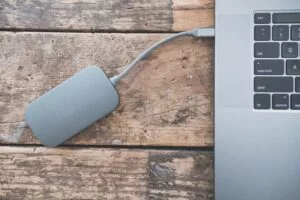
The Best External Hard Drives in Canada
Have you ever run out of storage on your computer, console, or other device? If so, then using an external hard drive is the solution to this problem.

The Best Blenders in Canada
We searched high and low, and here are the best blenders available for any budget.
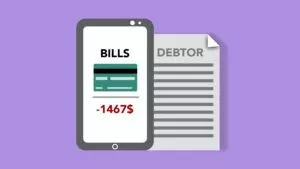
Compare the Best Loans in Canada
Need a quick lumpsum or planning to do a big purchase? Find out which of these top loans suit you.
